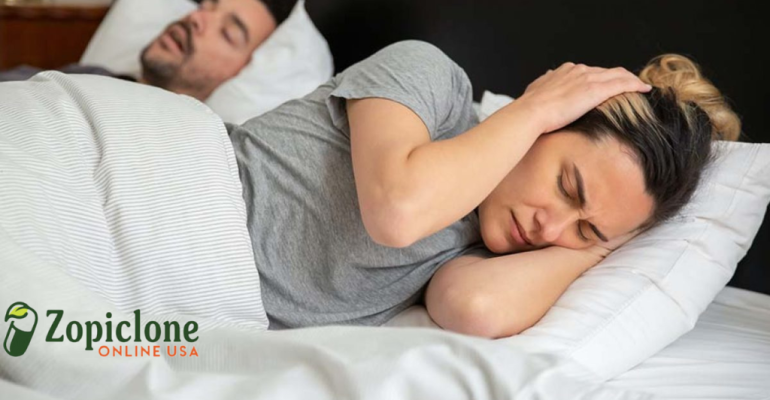Central Sleep Apnea: Symptoms, Causes, and Treatments

Central Sleep Apnea: Symptoms, Causes, and Treatments
Sleep is essential for our physical and mental well-being, allowing our bodies to rest and rejuvenate. However, for some individuals, sleep can be disrupted by a condition known as central sleep apnea (CSA). Unlike the more common obstructive sleep apnea, Central apnea is characterized by interruptions in breathing during sleep that result from a breakdown in the brain’s signaling to the muscles responsible for breathing. In this article, we will delve into the world of central sleep apnea, exploring its symptoms, causes, and available treatments.
Contents
Understanding Central Sleep Apnea
Central sleep apnea occurs when the brain fails to send the appropriate signals to the muscles that control breathing. This lack of communication leads to repeated pauses in breathing during sleep, often lasting for 10 seconds or more. These pauses can happen multiple times throughout the night, disrupting the sleep cycle and preventing the individual from reaching restorative deep sleep stages.
Symptoms of Central Sleep Apnea
- Interrupted Sleep: Frequent awakenings during the night, often accompanied by choking or gasping for breath, are common signs of central apnea. These interruptions can lead to persistent fatigue and daytime sleepiness.
- Difficulty Staying Asleep: Central sleep apnea may cause difficulty in maintaining a continuous sleep pattern, as the body’s efforts to resume normal breathing can lead to brief awakenings.
- Morning Headaches: Individuals with CSA sleep apnea often wake up with headaches due to the decreased oxygen levels in their blood during apnea episodes.
- Lack of Energy: The constant disruption of sleep can result in a lack of energy and daytime fatigue, making it challenging to concentrate and perform daily tasks.
- Mood Changes: Irritability, mood swings, and depression can be associated with central apnea, as the sleep disturbances impact emotional well-being.
Cause of Central Sleep Apnea
- Heart Disorders: Conditions such as congestive heart failure and atrial fibrillation can disrupt the brain’s control over breathing, be the major cause of central sleep apnea.
- Neurological Disorders: Certain neurological conditions, including Parkinson’s disease, stroke, and brainstem damage, can interfere with the brain’s respiratory signals.
- Medications: Some medications, particularly opioids and certain sedatives, can depress the respiratory centers in the brain, contributing to cause of central sleep apnea.
- High Altitudes: Exposure to high altitudes with lower oxygen levels can trigger central apnea in some individuals.
- Cheyne-Stokes Respiration: This is a specific pattern of breathing that alternates between deep and shallow breathing, often observed in individuals with heart failure, and it can be associated with CSA sleep apnea.
- Idiopathic Central Sleep Apnea: In some cases, the exact cause of central sleep apnea remains unknown, and it is referred to as idiopathic central sleep apnea.
Treatments for Central Sleep Apnea
- Lifestyle Changes: In mild cases of central apnea, lifestyle modifications can be effective. These include maintaining a healthy weight, avoiding alcohol and sedatives before bedtime, and sleeping on your side rather than your back.
- Continuous Positive Airway Pressure (CPAP): A CPAP machine delivers a continuous stream of air through a mask, helping to keep the airway open during sleep. Although more commonly used for obstructive sleep apnea, CPAP can also be beneficial for some individuals with central sleep apnea.
- Adaptive Servo-Ventilation (ASV): ASV devices are designed specifically for CSA sleep apnea. They monitor the individual’s breathing patterns and adjust air pressure to provide the necessary support to maintain regular breathing.
- Medications: In some cases, medications may be prescribed for the treatment for CSA sleep apnea. Zopiclone 20mg is one such medication that help you to get better sleep at night and may be used in specific situations.
- Treatment of Underlying Conditions: Addressing underlying medical conditions, such as heart failure or neurological disorders, can often alleviate CSA symptoms. This may involve medications, surgery, or other interventions.
- Supplemental Oxygen: For individuals with central apnea related to low oxygen levels, supplemental oxygen therapy can help maintain adequate blood oxygen levels during sleep.
- Lifestyle Changes: Practicing good sleep hygiene, such as maintaining a regular sleep schedule and creating a comfortable sleep environment, can also improve sleep quality for those with central sleep apnea.
Conclusion
Central sleep apnea is a sleep disorder that disrupts the natural breathing process during sleep, leading to symptoms like interrupted sleep, morning headaches, and daytime fatigue. Understanding the cause of central sleep apnea and recognizing the symptoms is crucial for timely diagnosis and treatment. While lifestyle changes and CPAP therapy can help manage CSA sleep apnea, addressing underlying medical conditions and exploring advanced treatments like ASV can provide relief to those affected. If you suspect you or a loved one may have central apnea, seeking medical evaluation and guidance is essential to improve overall sleep quality and quality of life.

Hello, my name is Marcie C and I am a professional medical content writer based in the USA. With a passion for healthcare and a flair for writing, I specialize in creating engaging and informative content for the medical industry. Read more about me…






